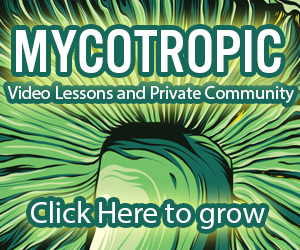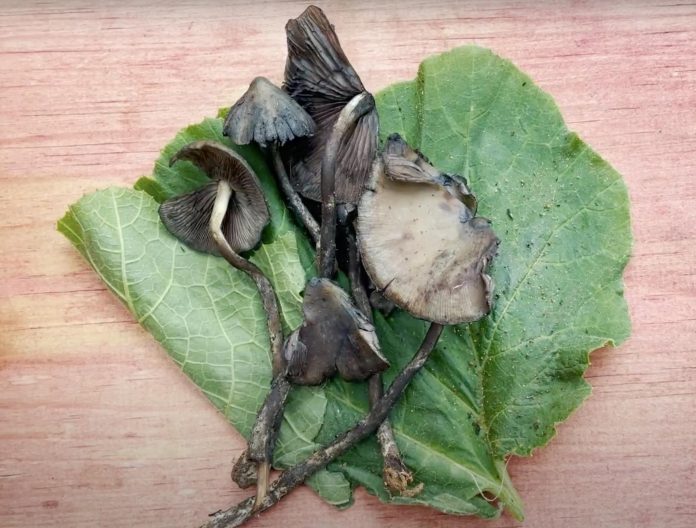Magic mushroom fever is sweeping the world, but what are the actual legal frameworks around hallucinogenic fungi in the dozens of countries where they can be found?

Like many things, it depends on where in the world you go –
Laws covering psilocybin mushrooms are typically divided into four categories; possession, sale, transport, and cultivation.
The laws governing magic mushrooms in different nations and territories around the world are scattered in various degrees of permissiveness across these four categories, with blanket prohibition and criminalization of all four categories in places like Hong Kong and Norway, to a mixed approach favoring possession but criminalizing sale in British Virgin Islands and Austria, to full legal protection across all categories in Jamaica, Brazil, The Bahamas, Nepal and Samoa.

A global map of the legality of psilocybin mushrooms around the world
Though the majority of the 193 United Nations member states classify psilocybin mushrooms as a prohibited substance under the 1971 Convention on Psychotropic Substances, psilocybe spores remain legal in numerous jurisdictions around the world. This has led to a thriving legal market for magic mushroom spores explicitly marked ‘for microscopy use only‘ in many parts of the world.
There are also numerous places where legally established prohibition against psilocybin mushrooms remains unenforced by local authorities, as anyone who has ever bought an openly advertised ‘mushroom milkshake’ at a Full Moon Party in Koh Pha Ngan or fresh Hongos sagrados in San Jose del Pacifico can attest to.

Where are Magic Mushrooms Fully Legal?
Jamaica currently harbors the world’s only fully legal psilocybin mushroom industry.
The expansion of laws and regulations to include legal protection around the cultivation, transportation, use, and sale of magic mushrooms has led to a mycopreneurial boom in the Caribbean nation known for sunshine and reggae.
Dozens of magic mushroom retreat centers have opened across the island, typically catering to affluent tourists from North America and Europe.
According to a prominent local business executive knowledgeable about such matters, several more Caribbean island nations are poised to legalize psilocybin mushrooms and develop a regulated industry around them in the near future.
The presence of high-priced multinational operations primarily targeted towards affluent white tourists from the United States, Europe, and Australia has provoked ample criticism from people wary of neocolonial tropes embedding themselves in the ‘psychedelic renaissance’ – which is in itself a rather neocolonial expression.
This is an often underreported dynamic of the legal psilocybin mushroom industry in Jamaica, especially considering that at least one high profile and high-priced center is currently operating on the grounds of a former slave plantation.

Have you seen the mushroom man?
For those who may be interested in accessing psilocybin mushrooms in a safe, fully legal setting, Oregon is now an option as of January 1st, 2023.
This flagship model for psilocybin-assisted therapy is legal in the state of Oregon, but psilocybin mushroom cultivation, transportation, possession, and use remains federally illegal in the United States. The implications of this state vs. federal legal discrepancy remain unclear, though numerous psilocybin service centers and an ecosystem of practitioners and entrepreneurs populating the legal psilocybin mushroom ecosystem in Oregon are actively administering legal psilocybin sessions.
Amsterdam was once known as the magic mushroom tourism capital of the world – but since the prohibition of fruiting body psilocybin mushrooms in the Fall of 2008, only magic truffles are available under a legal loophole that doesn’t cover sclerotia.
When I last visited Amsterdam in January of 2008, magic mushrooms were still legal to buy in any of the myriad smart shops across the city. The first time I ever consumed fresh psilocybin was after buying them in an individually wrapped container at one such shop – though shortly after my visit, psilocybin mushrooms were outlawed and replaced by the more legally ambiguous magic truffle.
Above and beyond the thriving underground market and the robust magic mushroom subculture that spans the planet, there are many places where federal prohibition of magic mushrooms is either unenforced or entirely nonexistent.
Kodaikanal, India is one such example – though officially illegal, wild psilocybes grow in abundance in this former British colony hill station and can be easily found for purchase.
Mexico has also long been a popular travel destination for those seeking magic mushrooms. Though technically federally illegal, they are commonly available to the public in towns like San Jose del Pacifico, Mazunte, Palenque, and around Tulum. When inquiring about the availability of mushrooms in a country where you’re a guest, it’s important to follow local customs and operate within the established protocols of the culture in place. As an example, though magic mushrooms are widely available in San Jose del Pacifico, it’s generally a good idea to learn about the history and significance of mushrooms in Oaxaca and to ensure that you are purchasing from a local vendor and conducting yourself in a respectful and responsible way throughout your visit.

Hongos en Oaxaca (photo: Inti Garcia Flores)
Gili Trawangan is another such place – though Indonesian drug laws are typically draconian and register psilocybin mushrooms as a ‘Type 1’ substance with potential capital punishment ascribed to those who may possess or distribute them, magic mushrooms are readily accessible across much of Bali.
The reality of the situation is that magic mushrooms are currently available in many different places around the world – regardless of their official legal designation. Travelers in Southeast Asia will find mushrooms in many of the most popular backpacking towns, where authorities typically turn a blind eye to the wild psilocybe trade that pops up in towns like Vang Vieng, Laos.

With the legal establishment of Oregon’s Psilocybin Services Act and corresponding psilocybin mushroom therapy centers, as well as the recent legislation set in motion by the passing of Colorado’s Proposition 122, the legal precedent for a regulated psilocybin mushroom industry has been established in the United States – though it may be a decade or more before we see a cohesive legal federal framework around psilocybin.
Psilocybin mushroom culture is actually one of the oldest elements of human civilization, as evidenced by prehistoric cave paintings in Algeria and anthropomorphized mushroom stone effigies in Guatemala – but the establishment of a legal and regulated industry around these mushrooms is seeing widespread and renewed interest since their formal prohibition in many countries and territories after the 1971 Convention On Psychotropic Substances via the United Nations.
The transnational evolution of formal cannabis legislation & regulation as well as an increasingly globalized business environment suggests that more countries and territories around the world will push towards formally legalizing a psilocybin mushroom industry over the next decade and beyond – how this will play out is anyones guess, but the odds of a global regulated industry in place of widespread prohibition is looking increasingly likely.







